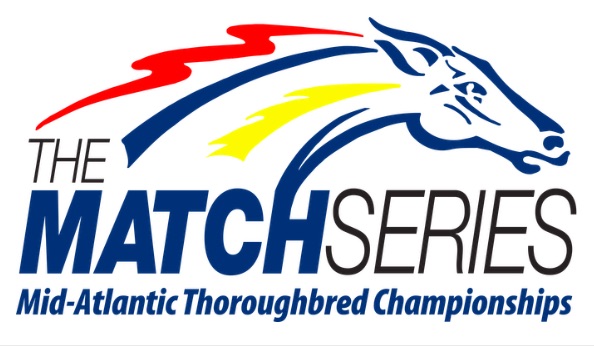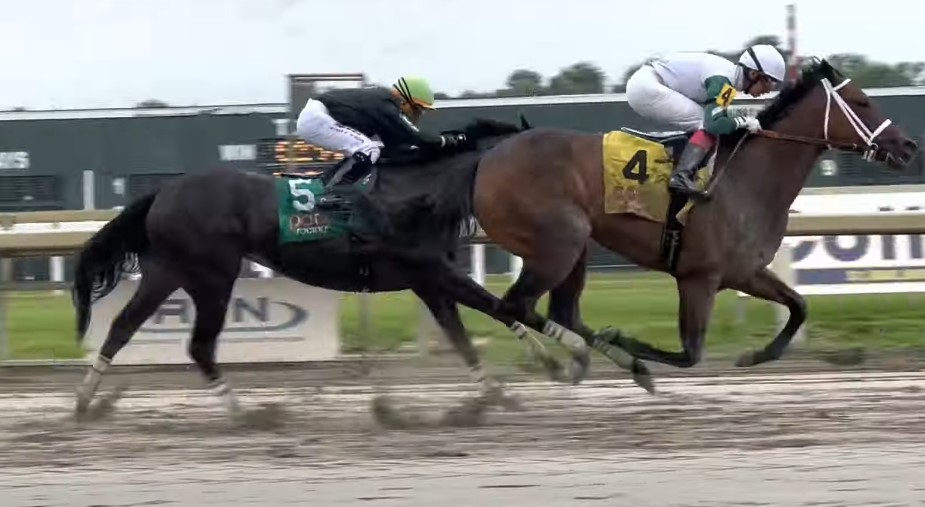
SPOOKED BY WOLF, PA HORSE BREEDERS LOOK TO MARYLAND FOR A STABLE ENVIRONMENT
POSTED ON MARCH 11, 2020
BY KEVIN SHELLY
Like the rest of the Pennsylvania equine world at the moment, Donald L. Brown Jr.‘s plans are on hold. That’s due to a proposal by Gov. Tom Wolf to break a trust fund that supports horse racing. Wolf had approved the trust law just two years ago.
Now though, Wolf wants to divert trust funds and use them to create up to 25,000 scholarships for students attending one of 14 state universities in the Commonwealth.
That’s just a long-shot proposal for now.
It has more jumps and hazards to clear than a steeplechase course. Among them, ongoing state budget hearings, no legislative language, no named bill sponsors, no clear bipartisan support, as well as probable legal action if the plan is approved — just to name a few.
WOLF’S PROPOSAL HAS SPOOKED INVESTMENT IN THE HORSE INDUSTRY
But the mere suggestion of a drastic change in funding is enough to have spooked the equine industry.
Take Brown, who had planned to close on the purchase of a horse farm on March 3, but instead postponed.
Four months ago, he put down a deposit on a 50-acre farm in Mechanicsburg, about 10 miles from the PA state capital, Harrisburg.
The closing date was March 3. He has postponed indefinitely.
Wolf fouled the entire horse industry, with 20,000 employees in the Commonwealth, when he rhetorically asked during his Feb. 4 budget address, “Are we going to bet on horses or are we going to bet on our kids?”
Horses are the second-largest animal agricultural industry in Pennsylvania. The industry, with a $1.6 billion economic impact, which also preserves more than 100,000 acres of open space, was left stunned.
IF YOU CAN’T TRUST THE GOVERNMENT, WHO CAN YOU TRUST?
After all, the horse money came from a cut of casino slot revenue, not tax dollars. Gov. Ed Rendell, another Democrat, signed off on creating the revenue stream with 2004 legislation.
The law ushered in casinos with compensation to horse tracks for gambling revenues they were expected to lose to the new gaming facilities. It was a compromise brokered between urban Democrats pushing for casinos and Republicans from rural areas with a stake in agriculture and horses.
“I remember Ed Rendell telling us it would triple the money in horse racing,” recalled Brown, who runs a small breeding operation on a rented farm property that’s been sold to a developer.
HORSE BREEDER, LIKE HIS HORSES, IS PENNSYLVANIA-BRED
With just 120 days of notice, he might need to move his 45 mares elsewhere. Which is why he wanted his own farm in PA.
And despite that, he’s now looking out of state for a more secure political and financial environment.
Ironically, other states creating that sort of an environment for their horse business, such as nearby Maryland, at least partially took cues from Pennsylvania when they began building their equine programs, said Brown.
Brown realizes Wolf’s proposal is hardly a sure thing. But he believes the government will keep finding a reason to snatch away the brass ring on the political merry-go-round.
Security matters to Brown and his business. “I have nine people working for me. They are as nervous as I am.”
PA HORSE FARMERS ARE SPOOKED, FOR GOOD REASON
Jim Simpson, chairman of Hanover Shoe Farms, told the PA Post if the governor’s plan goes through, the farm will have to consider selling land to developers.
The farm in South Central PA’s York and Adam counties had a payroll of $3.2 million last year and paid about $4.1 million to Pennsylvania vendors, including more than $850,000 for a nearby hay supplier.
When Ken Stirling started looking for a passion project as he neared retirement age, the 57-year-old engineer from Cambria County decided to follow his heart into the horse business. But he also let his head take the lead back in October of 2019.
Brown engaged a consultant from Kentucky. He said his long-term plan was to purchase quality breeding and racing stock, and then participate in the PA breeding incentive program.
And that’s when Stirling’s consultant emphatically cautioned: whoa!
According to Sterling, the consultant “explained to me the history of the PA Horse Race Development Trust Fund, how it has been utilized through the years, and the potential pitfalls associated with relying on its continued existence.”
More than $380 million was diverted out of the horse fund before it became a trust.
HORSE COMMUNITY LOOKS TO MARYLAND
Instead of investing in PA, Brown shifted focus to Maryland. The political climate there now is more welcoming for the horse industry than in PA.
“Since November, I have made two investments into partnerships and am very happy with my decision thus far. If things go well, I’m hoping to add to these holdings in 2020.
“The decision to look outside of PA was recently validated with Gov. Wolf’s proposal. Many smart people have recently said, the mere threat of the fund being taken away causes harm. I can say, in my little corner, those are true comments.”
The PA Equine Coalition, a lobbying group, published a release on March 4 with five breeders from Northeast PA making similar comments about how the proposal is hitting them. That also includes their plans for the future, involving moving business outside of PA.
EQUINE FOLK SUPPORT SCHOLARSHIPS, BUT NOT FUNDING PLAN
The release concluded with spokesperson Pete Peterson addressing the scholarship end of Wolf’s proposal:
“Yes, college tuition is spiraling out of control and college debt is a major concern. But you don’t fix one debt problem by creating another debt problem and putting 20,000 people out of work and bankrupting businesses and farms.
“If this is a priority for the governor, he needs to find another source of funding, because his current plan would be a disaster for Pennsylvania agriculture, farms, and small businesses.”
—












